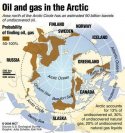Man, I could only wish that he is still with us in this forum today. Really want to hear his (and various actors in Washington DC's) thoughts on the B-21.Something our friend @Patchwork_Chimera posted today. I'm seriously amazed at his stamina in writing thesepposts.
Imo, he has pointed out how much effort is required to launch one major antishipping sortie against a us naval carrier group. In the past, he has also discussed how much difficulty is required for 3 csg air wing to generate strike missions against fixed target in mainland.
Anyway, I would love to hear him share some thoughts about what would be needed to coordinate subsonic anti shipping attacks from j16s and hypersonic attacks from df17s or 055s in at around the same time. I have heard a lot of talks about needing to give defense different looks in a saturation attack. So it would make sense to me that they might want to try air launched yh83k as well hypersonic missiles in the same package.
Can anyone still get a hold on him today?

